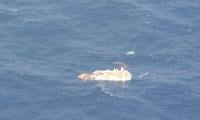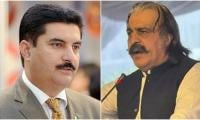ISLAMABAD: In a new development, the World Bank that brokered the Indus Waters Treaty in 1960 has indicated that it will soon constitute both the Court of Arbitration (CoA) and Neutral Expert (NE) — the forms available in the treaty to resolve the fate of controversial Indian projects. The projects include the 330MW Kishenganga built on Jhelum River and 850 MW Ratle Hydropower projects being erected on Chenab River by India.
The Pakistani authorities are engaged with the World Bank’s relevant top functionaries since it announced on March 31, 2022 to lift the ‘stay’ it took in December 2016 and to reinitiate the process to constitute the Court of Arbitration and Neutral Expert (NE).
The Attorney General’s Office on July 28 wrote a letter to the World Bank, asking it to accelerate the process to constitute the Court of Arbitration (CoA) as desired by Islamabad to decide the fate of both projects.
The Water Resources Ministry also confirmed to The News that the AGP’s office has written a second letter on July 28 to the Washington-based World Bank, asking it to expedite the process for the formation of CoA. And in response to the letter, authorities in Washington said that they were very much in the process of constituting the CoA and would soon get the job done.
Earlier, Pakistan had sought details in May 2022 from the World Bank on how to advance with regard to the constitution of the Court of Arbitration (CoA) and the appointment of a Neutral Expert to resolve the long-standing disputes.
The relevant officials said that Pakistan’s demand for the formation of a Court of Arbitration for resolving the issues of objectionable designs of both projects has been double-checked whether the demand of the country was right or wrong. They said that Pakistan to this effect also sought an opinion from the international water laws experts and they confirmed that Pakistan’s point of view seeking the constitution of CoA was correct.
Pakistan didn’t want a Neutral Expert to listen to the case, but it was the demand from India that a one-man Neutral Expert should listen to the disputes first. The World Bank then took a ‘pause’ in the process of making CoA and appointing a Neutral Expert. However, the World Bank in March, 2022, informed both Pakistan and India that it has lifted the stay it took in December 2016 and announced to constitute both forums — i.e. CoA and NE.
To a question, the officials said: “Now that both the forums CoA and NE will listen to the case. We have no problem if the NE first listens to the case as Pakistan’s case is very strong.” Pakistan is of the considered opinion that if the Ratle project is completed with its current objectionable design, Pakistan would have to bear a 40 per cent loss in water flows in Chenab River that are destined to reach Head Marala, Sialkot. This means a huge loss to irrigation of various crops in Punjab, which is the food basket of the country. The Ratle project once completed will directly damage the food basket of the country. Pakistan believes that Kishenganga’s poundage should be maximum of one million cubic meters instead of 7.5 million cubic meters while its intake should be up to four meters and the spillways should be raised to nine meters.
India had erected the Kishenganga project with an objectionable design in 2017, one year after the pause taken by the World Bank and now it is advancing its construction on the site of the Ratle hydropower project again with a design that does not conform to the provisions of waters treaty in line with the objections raised by Pakistan.
Pakistan had written a letter to the World Bank on April 3, 2018, saying that the pause taken by the Bank has allowed time for the Indian side to erect the Kishenganga project. In case of failure, the Ratle Dam, having gross reservoir capacity of 18,646 acre feet and a live storage capacity of 8,107 acre feet with height of 191 feet, may have a significant impact on Pakistan. It is located upstream of dams under construction such as Baglihar and Sawalkot, while the Salal hydropower project is under operation.
Top official sources said that the Court of Arbitration would be composed of one chairman, two umpires and two arbitrators from Pakistan and two from India. The Neutral Expert is one-man court which is appointed with consultation of both the countries in the dispute and in case both countries could not develop a consensus on one personality, then the World Bank appoints a Neutral Expert on its own and both the parties to the dispute have to comply with its decision.
They also said that the World Bank’s inaction for over five years has provided enough time to India to make 330MW Kishenganga project operational on the Jhelum River and construct the 850 MW Ratle project to a reasonable extent on the Chenab River. So much so, India has submitted to the United Nations its final design of the Ratle project without allaying concerns of Pakistan for qualifying the carbon credits.
Convener directs that steps be taken in accordance with policy for complaints regarding dummy newspapers
Bukhari recalls going quiet for days after she saw video of her face superimposed on the body of Indian actor
DAG assures court that report on all registered FIRs would be submitted within two weeks
Ambassador Asim Iftikhar emphasises Nadra's role in empowering citizens and connecting people globally
Circular says pension increase under paragraph one of Finance Department’s letter issued in 2022 has been stopped
CM says coastal Highway being constructed by Sindh and federal governments has potential for economic activities







